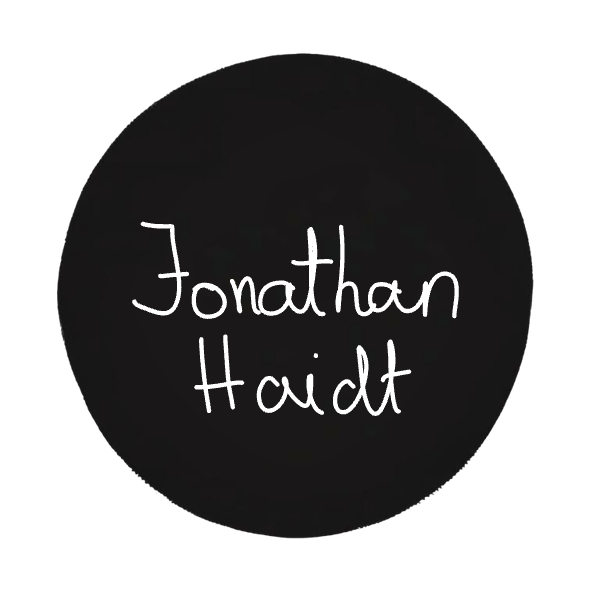Objective
To assess whether Jonathan Haidt, social psychologist and author of The Righteous Mind and The Coddling of the American Mind, aligns with the ISTJ (Introverted, Sensing, Thinking, Judging) personality type by analyzing his behavior, communication style, academic contributions, and public presence through the MBTI cognitive function lens.
Framework: MBTI Cognitive Functions
- Si (Introverted Sensing) – dominant
- Te (Extraverted Thinking) – auxiliary
- Fi (Introverted Feeling) – tertiary
- Ne (Extraverted Intuition) – inferior
Data Collection: Observed Traits of Jonathan Haidt
- Grounded in empirical research: Emphasizes cross-cultural studies, behavioral experiments, and evolutionary psychology, rooted in evidence and precedent.
- Methodical, historical thinker: Regularly draws on past psychological findings, ancient wisdom, and classical liberal philosophy to support his frameworks.
- Structured worldview: Defends traditional institutions like universities and moral communities while seeking reform through rational, systematic critique.
- Cautious and pragmatic: Advocates for balanced, long-term solutions over ideological experimentation or utopian thinking.
- Reserved and precise communicator: Measured, thoughtful, and highly deliberate in interviews and writing.
- Personal moral consistency: Deeply values integrity, academic honesty, and careful judgment, though not overtly emotional in expression.
Pattern Analysis via Cognitive Functions
Si (Dominant Introverted Sensing)
- Evidence: Haidt builds his theories by compiling detailed, time-tested psychological evidence, often referencing moral systems across history and cultures.
- Analysis: Si leads to a stable internal framework of knowledge based on personal experience and reliable precedent. Haidt’s careful historical contextualization and resistance to sudden cultural shifts strongly indicate dominant Si.
Te (Auxiliary Extraverted Thinking)
- Evidence: His arguments are structured logically, aiming to organize public discourse around empirical reality. He critiques institutional dysfunction using clear, rational frameworks.
- Analysis: Auxiliary Te seeks effectiveness, order, and logical standards. Haidt’s proposed reforms (e.g., depolarizing education via institutional changes) reflect practical, system-oriented thinking.
Fi (Tertiary Introverted Feeling)
- Evidence: His concern with moral psychology and the sacred nature of values indicates a personal relationship to ethics, even if it’s subdued in expression.
- Analysis: Tertiary Fi lends Haidt a subtle but stable value system. He doesn’t lead with emotion, but his work is clearly guided by a deep internal sense of fairness and intellectual integrity.
Ne (Inferior Extraverted Intuition)
- Evidence: While capable of seeing ideological complexity, Haidt is not highly speculative or abstract for abstraction’s sake. He prefers tested hypotheses over novel or radical theoretical leaps.
- Analysis: Inferior Ne leads to discomfort with chaotic or imaginative ideologies. Haidt often warns against utopian idealism and advocates for grounded, moderate change.
Conclusion
- Dominant Si → internal reliance on accumulated historical knowledge, empirical data, and personal experience
- Auxiliary Te → structured communication, practical reformism, and rational system-building
- Tertiary Fi → quiet but influential ethical core, visible in his concern for moral balance and social cohesion
- Inferior Ne → preference for stable, moderate, evidence-based change over novelty or abstraction
Synthesis
Jonathan Haidt exemplifies the ISTJ archetype of the ethical empiricist. His dominant Si gives him a sense of moral and psychological continuity, while auxiliary Te enables him to organize societal concerns into logical reform strategies. Instead, his personality resists ideological swings and seeks to preserve institutional integrity through steady, evidence-informed engagement. Haidt’s work reflects a deeply ordered internal world shaped by experience, caution, and principle—hallmarks of a mature and intellectually rigorous ISTJ.
***
